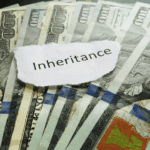The sudden loss of a loved one is a heartbreaking experience. But, when that loss results from someone else’s negligence, it’s natural to wonder about seeking justice. If you find yourself in this painful situation, you might be asking, “how long does a wrongful death lawsuit take?” The unfortunate truth is, there’s no simple, one-size-fits-all answer. Every wrongful death lawsuit is unique, impacted by many different elements.
Understanding Wrongful Death Lawsuits
First, let’s clarify what constitutes a wrongful death. Simply put, wrongful death happens when someone dies because of another person or entity’s wrongful act, negligence, or default. This could be a car accident where the other driver was at fault, a medical error, or even a workplace accident due to unsafe conditions.
A wrongful death claim seeks to hold the responsible party accountable. It aims to compensate the deceased person’s family for their loss. This loss isn’t just about funeral costs. It encompasses the loss of the deceased person’s income, companionship, and emotional support, among other things.
What Makes a Wrongful Death Lawsuit Different?
In Pennsylvania, wrongful death lawsuits differ from typical personal injury cases.
Here’s why: In personal injury cases, the injured person files a claim for their own damages. In wrongful death, the lawsuit stems from the loss suffered by the deceased’s estate and surviving family.
Understanding Pennsylvania’s Wrongful Death Laws
Pennsylvania law is clear: when someone is negligent, they can be held responsible If you’re a surviving family member, it’s essential to understand your rights and options under PennsylvaniaIf you’re considering filing a wrongful death claim, consult experienced attorney to discuss your specific situation and determine the best course of action.
Who Can File a Wrongful Death Lawsuit in Pennsylvania?
Pennsylvania law outlines who has the legal right to file a wrongful death claim. Generally, it’s not someone outside the immediate family.
Here’s a breakdown of those eligible to file:
- Spouse of the deceased
- Children of the deceased
- Parents of the deceased (if the deceased is not survived by a spouse or children
Personal Representative:
If no spouse, children, or parents are eligible, the personal representative of the deceased estate may file a claim. This representative is typically appointed by the court and is responsible for handling the deceased’s legal affairs. However, this claim is limited to recovering reasonable expenses like medical bills and funeral costs arising from the injuries that caused death.
Factors Affecting How Long Does a Wrongful Death Lawsuit Take
You want answers, I get it. It’s natural to want this painful chapter closed as soon as possible. So, let’s discuss what makes these cases so complex. Knowing what can cause delays will hopefully provide some clarity during this difficult time.
1. Investigation: Unraveling the Truth Takes Time
Here’s the thing: before you even think about court dates, a thorough investigation is crucial. Just like detectives piecing together a case, lawyers on both sides start digging for evidence. This often involves:
- Examining police reports and medical records.
- Interviewing witnesses who might have seen what happened.
- Consulting experts depending on the specifics of your case.
Gathering this information isn’t always quick. Sometimes records are spread across different hospitals, and getting expert opinions can take a while. Unfortunately, this is often one of the lengthier parts of the process.
2. Statute of Limitations: The Clock is Ticking
In the legal world, there’s a deadline for nearly everything. The “Statute of Limitations”, as it’s called, sets a firm time limit on how long you have to file a lawsuit. Imagine it as an expiration date for filing your claim.
It’s critical to understand this because, in wrongful death cases, this timeframe is usually shorter than you’d expect. In many states, it’s just two years from the date of death. That’s why taking swift action after losing a loved one is vital.
3. Negotiations: Finding Common Ground
After your attorney presents a strong case, the other side has to respond. In an ideal world, they immediately admit fault and agree to a reasonable settlement. However, the real world is a tad more complex.
There’s usually back-and-forth negotiation with the at-fault party’s insurance company. Why? It all comes down to money, they often try to minimize payout. This means your attorney needs to be a tough negotiator. They must advocate for your rights and work to secure a fair settlement. These discussions can stretch for weeks, sometimes months. It largely depends on how willing the other side is to cooperate.
4. Trial: When Negotiation Fails, Court is Next
If the opposing party remains unreasonable and refuses a fair settlement, then preparing for trial becomes the next step. Cases going this far almost always mean it’ll be years, not months, before it reaches a conclusion. Keep in mind, court dockets are often overloaded. A wrongful death trial itself can take weeks or longer to play out.
Additional Challenges That Can Delay a Wrongful Death Case
As if the factors we discussed earlier weren’t enough to contend with, some additional nuances add even more time to how long does a wrongful death lawsuit take. Contributory negligence, probate issues, and multiple defendants are three circumstances that create hurdles impacting a wrongful death case.
Contributory Negligence
In a nutshell, contributory negligence arises if there is uncertainty over which party was truly to blame, which frequently happens. Imagine this: the person responsible argues your loved one’s actions contributed to the accident. A prime example would be a car accident where your loved one, while not at major fault, might have been driving slightly above the speed limit.
The limited time is two years to pursue legal action in Pennsylvania following a death. Their actions, even if minor, might lessen their overall liability, significantly impacting the outcome of your case and potentially causing major delays. It can turn into a messy legal battle, which can substantially prolong the lawsuit.
Probate Matters
If your family’s unfamiliar with legalities surrounding estates, brace yourself because probate is complex and potentially time-consuming. First, there is the probate estate to think about. Add to that, several different kinds of damages, such as medical costs, might come up. You might need to navigate probate court. In simpler terms, it’s a court process that handles a deceased person’s assets. It often requires establishing “standing,” meaning you have the legal right to represent the deceased. This can take time, especially if the deceased’s will is contested or their assets are complex.
Multiple People or Entities are Named
Imagine a scenario with more than one party potentially responsible. Maybe multiple drivers in that accident, or even a manufacturer of faulty equipment, share some blame. These cases, unfortunately, add more legal wrangling. Instead of one defendant, you’re now dealing with several legal teams, each trying to shift blame away from their client.
These complicated dynamics bring challenges to negotiating a settlement. Getting numerous parties to agree on who bears responsibility and how much each party should contribute to any compensation awarded adds complexities. Because of the intricacies involved, delays are pretty much guaranteed in these cases.
How Much Is a Wrongful Death Settlement?
Let’s face it, no amount of money replaces a lost loved one, but pursuing a wrongful death lawsuit seeks justice and financial stability after a preventable tragedy. It’s understandable to wonder, in a situation like this, how much can be expected? The unsettling truth is there’s no fixed dollar amount.
However, some factors do provide a glimpse into potential wrongful death lawsuit settlement amounts:
- Earning Potential: Courts examine your loved one’s lost earning potential. Factors considered include their age, career path, and expected future earnings. A higher earning capacity might increase the potential settlement.
- The Impact on Your Family: The loss of companionship, guidance, or emotional support greatly factors into calculating the settlement. This aspect recognizes the profound, intangible losses experienced by families.
- Economic and Non-Economic Damages: Wrongful death claims seek compensation for both economic and non-economic damages. The settlement can incorporate medical bills, funeral expenses (economic damages) along with loss of consortium and emotional suffering (non-economic). For example, you could receive three digits or even over $1 million in compensation for these damages.
The Role of a Wrongful Death Lawyer
Navigating these legal complexities alone after the loss of a loved one is challenging, which is why working with a skilled and experienced wrongful death attorney can significantly affect your journey. Their knowledge base is invaluable.
Seeking Justice
Lawyers understand the emotional toll losing someone has on families. They’ll handle much of the heavy lifting, such as gathering evidence and navigating complex legal procedures so you can focus on what matters most: healing and remembering your loved one.
Wrongful death lawsuits, however, do follow a certain process. They act as your guide and advocate from beginning to end. It starts with you contacting a lawyer who can help you with your specific circumstances. They then work tirelessly on your behalf to help you and your family attain the best possible result.
Wrongful Death Attorneys are with you Every Step of the Way
They’ll provide support and guidance through the ups and downs. During the early stages of the lawsuit, family members or, at times, a personal representative of the deceased, consult with a lawyer. This allows the family to understand the complex world of lawsuits and work through what it will take to resolve the case.
Seeking Legal Counsel
Losing a loved one unexpectedly is a profound and painful experience. When someone else’s negligence is to blame, grief can be mixed with anger and confusion. In this incredibly difficult time, it’s understandable to feel overwhelmed and unsure of what steps to take.
Why an Experienced Wrongful Death Attorney Can Help
While this information isn’t a substitute for legal advice, consulting with an experienced wrongful death attorney can be a powerful first step towards healing and justice. Here’s why:
- Understanding Your Rights: Wrongful death laws vary by state. An attorney can explain your legal rights and options specific to your situation.
- Investigating the Cause: Wrongful death cases often require extensive investigation. An attorney can gather evidence, such as accident reports, medical records, and witness statements, to build a strong case.
- Navigating the Legal System: The legal system can be complex and time-consuming. An attorney can guide you through the filing process, negotiations, and potential court appearances.
- Seeking Compensation: Financial burdens often accompany wrongful death. An attorney can fight to secure compensation for medical expenses, lost income, and pain and suffering.
- Emotional Support: An attorney can be a source of support and guidance during this emotional time. They can answer your questions, address your concerns, and advocate for you throughout the process.
The Importance of Individualized Attention
Every wrongful death case is unique, with its own set of complexities. An experienced attorney will take the time to understand the specifics of your situation, including the cause of death, potential liable parties, and the emotional impact on your family. This personalized approach ensures you receive the most effective representation possible.
Conclusion
So, how long does a it take? While we can’t give a hard and fast timeframe, understanding the contributing factors to these types of lawsuits can provide realistic expectations during this time of mourning. Factors such as thorough investigation and legal procedures significantly impact the timeline. Navigating through the potential roadblocks with an experienced legal professional by your side offers the support and guidance you deserve, helping bring a sense of closure, even when moving forward seems unimaginable.
Finding Justice and Healing with Bumbaugh George Prather
When a loved one is lost due to someone else’s negligence, it’s a devastating experience with emotional and financial scars. At Bumbaugh George Prather PLLC, we understand the weight of and are dedicated to helping you navigate the complex and fight for the justice and compensation you deserve.
Extensive Wrongful Death Cases
Our experienced attorneys have extensive experience handling wrongful death cases involving:
- Fatal accidents
- Medical malpractice
- Defective products
- Nursing home abuse
We understand no amount of money can bring your loved one back. However, we believe holding those responsible can bring a sense of closure and justice. We offer personalized attention and support throughout the entire process. If you’ve lost a loved one due to someone else’s negligence, contact Bumbaugh George Prather, PLLC today. We offer a consultation to discuss your case and answer your questions.
FAQs about how long does a wrongful death lawsuit take
Is it Hard to Win a Wrongful Death Lawsuit?
Proving the defendant’s negligence directly caused your loved one’s death can be quite hard. That’s because the burden of proof, often a “preponderance of evidence” (meaning “more likely than not”) lies on the plaintiff. This legal standard hinges on gathering compelling evidence to persuade the court. Experienced attorneys rely on thorough investigation and, in certain situations, use expert testimonies, police reports, accident reconstruction analyses, and medical documentation to bolster their arguments.
How Are Wrongful Death Settlements Calculated?
Numerous elements like lost wages, loss of companionship and guidance, along with mental anguish factor into this. In some instances, a previously little-known rule known as the discovery rule, which suggests the deadline can be extended if it emerges that the cause of death wasn’t readily discernible right away. This discovery rule acknowledges hidden information sometimes affects claims. Courts may award punitive damages if the defendant’s conduct is egregious to deter similar negligence in the future, though not awarded often.
What is the Timeline for the Wrongful Death Lawsuit?
Generally, wrongful death cases have more complex legal processes because they often entail estate matters. It’s common to see these cases extend beyond the norm as evidence gathered determines liability and assesses damages. In certain situations, additional factors influence a case’s duration, such as:
- Establishing liability (which usually involves proving negligence or wrongful conduct).
- Complex cases where proving liability proves hard can sometimes drag on for an extended period, sometimes even years, depending on the specific circumstances surrounding the wrongful death.
- Responsiveness of the involved parties, including insurance companies, can contribute to delays in settling a wrongful death lawsuit.
- Delays could occur, especially if cases need to go through appeals or require additional litigation should disagreements regarding liability or damages persist between involved parties during court proceedings.
Is Money From a Wrongful Death Lawsuit Taxable?
In most cases, money awarded for this type of loss, according to Rule 1.104-1 of the IRS, is not taxable. According to the Internal Revenue Service (IRS), because wrongful death settlements are viewed as arising from personal injuries, these settlements are typically viewed as non-taxable income under the existing tax laws within the United States. The underlying principle behind this is that these settlements are meant to provide financial relief for the losses suffered. However, it’s essential to note that tax laws can be complex and vary significantly.






